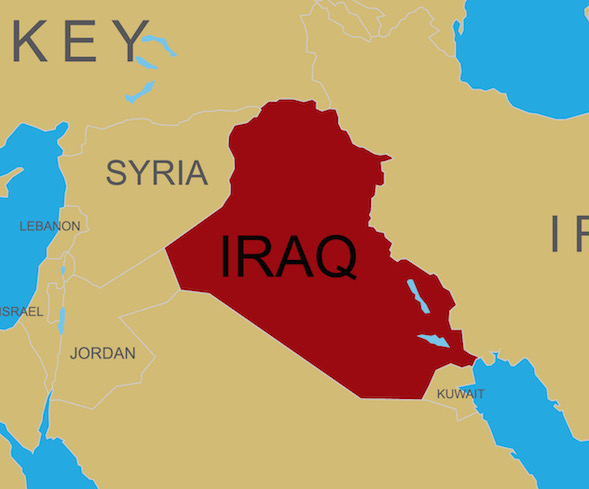 With the demise of Daesh faction in both Syria and Iraq shimmering in the horizon, Iraq has started getting back on track with official visits of top Iraqi officials to Jordan and Saudi Arabia, preparing to re-establish security and to reignite development in the war-torn country.
With the demise of Daesh faction in both Syria and Iraq shimmering in the horizon, Iraq has started getting back on track with official visits of top Iraqi officials to Jordan and Saudi Arabia, preparing to re-establish security and to reignite development in the war-torn country.
Amman has sent an invitation to the Iraqi Shiite leader Moqtada al-Sadr who pays a three day visit to Jordan where he had two closed door meetings with King Abdullah II and held meetings at the highest levels. This visit coincides with Iraqi Prime Minister Haidar Abadi’s visit to Saudi Arabia.
According to Jordanian media reports on the office of the Shiite leader, the latter received an invitation from the king. Prince Ali bin Al Hussein also had talks with the Iraqi cleric regarding "internal Iraqi reconciliation”.
The presence of Abadi in Riyadh is necessarily understandable. Amman has resumed its relationship with Baghdad for some time now, and today there is a trade that passes through the Iraqi "Turaibeel" crossing with Jordan. An oil pipeline is supposed to be on the verge of implementation, and many other economic details are on top of the talks as well. However, Abadi has shed the light on his vision for a unified Iraq on his visit as well as Al Sadr, who prefer a unified Iraq to a divided sectarian country.
Although there are not many details about Abadi's new vision, the Iraqi prime minister wants to send various messages to all regional powers that Iraq can tackle all issues without any external interference. Such two visits of Iraqi officials also coincides with Rex Tillerson to the Gulf States as he issued a statement for Iranian troops to leave Iraq.
Some experts in Jordan believe that such an invitation to a Shiite leader may show a real Jordanian inclination to measure the possibility of a cautious rapprochement with the Iranians through Shiite Iraqi clerics, who are gatekeepers to Tehran.
On the other hand, Iraqi observers believe that Abadi's visit would not certainly stand within the boundaries of the Saudi-Iraqi committee despite the great importance of such as visit to enhance relations between Riyadh and Baghdad at various levels, but it would also inevitably address the volatile situation in the city of Kirkuk. The Iraqi prime minister who headed a high-level delegation of more 60 ministers, officials and government advisers who attended the signing ceremony of the Saudi-Iraqi Coordination Council agreement.
The signing of the agreement of the Saudi-Iraqi Coordination Council, after the meetings and mutual visits between officials of the two countries in recent months, and the talks of the Iraqi Prime Minister on June 14 in Jeddah which resulted in the resumption of flights from Saudi Arabia to Baghdad, after they were suspended for 27 year reflect that Iraq and Saudi Arabia are heading towards a new page of relations, especially after the fall of Daesh.
US Secretary of State Rex Tillerson has taken part in the inaugural meeting of the Saudi-Iraqi Coordination Council. Such meetings are regarded in Baghdad as how the Americans delegate Saudi Arabia to deal with Iraq.
A new phase of joint Arab action began with the warmth of the Saudi-Iraqi relations, which culminated in the visit of Iraqi Prime Minister Haidar al-Abbadi to Riyadh, the establishment of the Saudi-Iraqi Coordination Council and his visit to Jordan few days ago.
Al-Abbadi's visit to Riyadh and Amman in the past few days marks the emergence of a new world in the Arab region after the expulsion of Daesh from Mosul and Raqqa, where the reconstruction phase and the great role regional companies can play in the reconstruction of Iraq.
After four months of Abadi’s visit to Saudi Arabia, he returned to resume talks which are critical to both countries at this time. These mutual visits of Iraqi and Saudi officials indicate the mutual interest of both Baghdad and Riyadh to move ahead with their ties to another level. Such improvement in relations will reflect on the strategic and security cooperation between both countries.
However, the talk about the role of the council indicate that Riyadh wants to have a role in reconstruction of Iraq and may be later on Syria after the end of war on terrorism especially with the upcoming conference that will be held in Kuwait for the reconstruction of Iraq. The other important angle is that such enhancement of relations would empower Iraq balance out its positions and strategies towards regional conflicts to avert any political and military as well a security repercussions which have destroyed Iraq since 2003.
Relations between Saudi Arabia and Iraq were cut for 25 years, before recent rapprochement, after former Iraqi President Saddam Hussein invaded Kuwait in 1990. Saudi Arabia has blamed Baghdad for being in the Iranian orbit and under Tehran’s influence. With the visits of Iraqi top officials to Amman and Riyadh, Baghdad is going to play a pivotal role in the coming era for regional stability and will help regain Iraq to its status before 1990 away from any regional influences. Saudi and Iraqi diplomats agreed at a March 12, 2017 meeting in Riyadh to stop exchanging aggressive remarks against each other and they are willing to open a new page in economic, security and tourism fields despite concerns over Iran's influence in Iraq. Normal bilateral ties between Baghdad and Riyadh would serve both peoples and their interests.